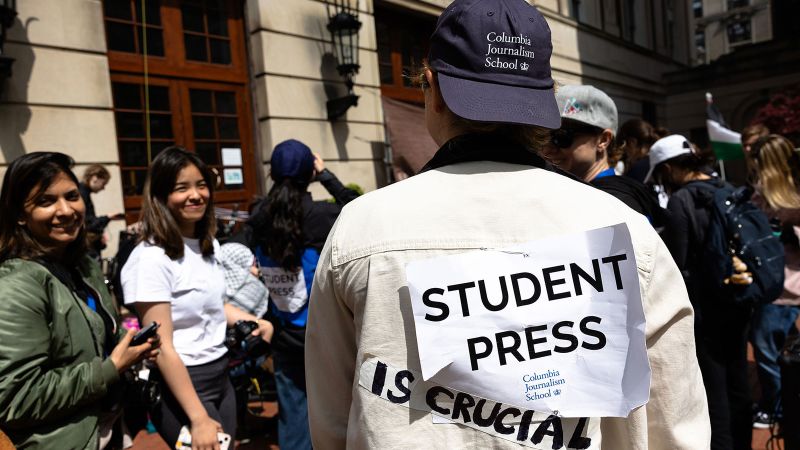Journalists covering violent unrest on college campuses have been arrested and barred access as police crackdown on pro-Palestinian protesters. Student-run news outlets and traditional media have descended on campuses where clashes have occurred. Reporters at Columbia University were barred from covering events as police arrested over 100 demonstrators. At UCLA, student journalists were attacked and gassed while covering clashes between protesters. The violence against journalists has led to limited access to campuses, making student reporters the main source of news coverage.
In some instances, student journalists have been assaulted while covering the protests. At UCLA, reporters from The Daily Bruin were physically attacked and sprayed with irritants during clashes between pro-Palestinian and pro-Israel groups on campus. The newspaper published a scathing editorial criticizing the university’s lack of protection for student journalists in the wake of the violent incidents. UCLA later canceled classes due to the distress caused by the violence on campus.
At California State Polytechnic University, Humboldt, three journalists, including a television news reporter, were detained while covering campus protests. The reporter was arrested despite wearing press identification and a station logo. Video footage showed the reporter being detained by police officers and taken to jail, where she was later released. The incidents of journalists being detained while reporting on campus protests have raised concerns about freedom of the press and safety of reporters.
At Columbia University, police officers in riot gear cleared a building occupied by pro-Palestinian protesters, limiting media presence on campus. Student journalists were pushed out of the area, preventing them from bearing witness to the events. Despite limited access, journalism students at Columbia reported on the scene, capturing arrests and clashes between police and demonstrators. The Columbia Journalism School supported student reporters in gaining access to facilities and resources to cover the protests effectively.
The high public interest in the clashes has led to issues with student-run news outlets staying online due to increased traffic. Columbia University’s radio station experienced intermittent outages while providing live coverage of the protests. UCLA’s Daily Bruin website was also inaccessible at times. Despite the challenges, student journalists have played a crucial role in reporting on campus events, providing transparency and critical information to the public. Organizations like the Student Press Law Center have expressed concern over the safety of student journalists and called for their protection in times of crisis.
University officials and law enforcement have been urged to ensure student journalists can report safely and accurately on historic events taking place on college campuses. The importance of student journalists in observing and disseminating news during crises has been emphasized, with praise for their reporting on the protests. The commitment to strengthening the student press and upholding press freedom in the face of threats and assaults against student reporters has been highlighted. Dean of the Columbia Journalism School, Jelani Cobb, commended student journalists for their perseverance and coverage of the national news story emerging on college campuses.


